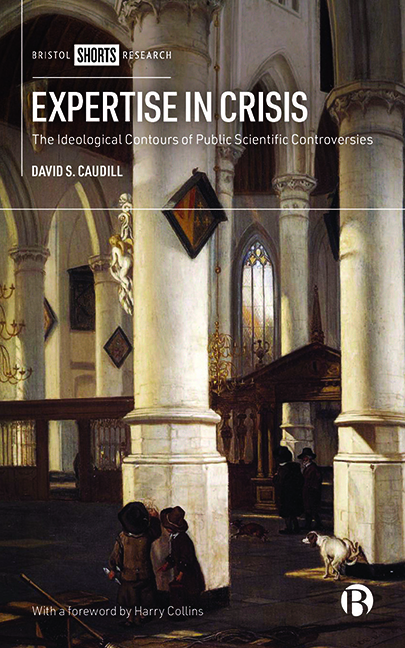Book contents
- Frontmatter
- Dedication
- Contents
- About the Author
- Acknowledgments
- Foreword
- Preface
- Introduction
- One What Caused, and How Do We Fix, Our Crisis?
- Two Worldviews as “Religious” Frameworks
- Three The Quasi-Religious Aspect of the Crisis
- Four Belief as a Form of Expertise
- Five Communicating across Worldviews
- Conclusion
- Notes
- References
- Index
Conclusion
Published online by Cambridge University Press: 18 January 2024
- Frontmatter
- Dedication
- Contents
- About the Author
- Acknowledgments
- Foreword
- Preface
- Introduction
- One What Caused, and How Do We Fix, Our Crisis?
- Two Worldviews as “Religious” Frameworks
- Three The Quasi-Religious Aspect of the Crisis
- Four Belief as a Form of Expertise
- Five Communicating across Worldviews
- Conclusion
- Notes
- References
- Index
Summary
Throughout this book, I have maintained both that ideology is inevitable and, consequently, that we cannot criticize others from a position of neutrality: “For Latour the critic pretends to an enlightened knowledge that allows him to demystify the fetishistic belief of naϊve others. … [T]he fatal mistake of the critic is not to turn this anti-fetishistic gaze on his own belief … a mistake that renders him the most naive of all.” Well before the crisis of expertise was intensified, due, in part, to the Trump administration’s response to global warming and the COVID-19 pandemic, Latour explained where such naivete leads: “This is why you can be at once and without even sensing any contradiction … an antifetishist for everything you don’t believe in … and … a perfectly healthy sturdy realist for what you really cherish.”
The situation with respect to consensus science therefore seems dire, as citizens living in different worlds cannot believe how blind their opponents are. Collins and Evans, however, in their analysis of communication between experts, rely on a Wittgensteinian view of lived worlds, wherein communication, in the sense of understanding the other side, is possible even between opposing worldviews. There may be limitations in the culture wars, insofar as a journalist who tries to embed within a far-right militia group in order to understand its beliefs might find that assignment difficult. However, in the field of scientific expertise, it is not difficult to imagine taking seriously (and respectfully criticizing) some of the scientific claims and data of minority-view scientists, all the while acknowledging the uncertainties and limitations of consensus science. With respect to controversial scientific issues, it is rarely a matter of claiming the unadorned “Truth” and identifying the stupid people who will not acknowledge it. We need, that is, to recognize the tension “between the need to preserve the right of the individual to make novel claims, setting him-or herself outside of the consensus, and the need to accept a degree of regulation of scientific thinking and acting if science is to move forward. … [S]cience is always balancing these two needs.”
Information
- Type
- Chapter
- Information
- Expertise in CrisisThe Ideological Contours of Public Scientific Controversies, pp. 69 - 71Publisher: Bristol University PressPrint publication year: 2023
